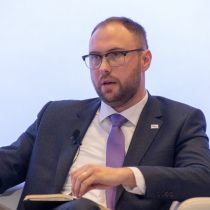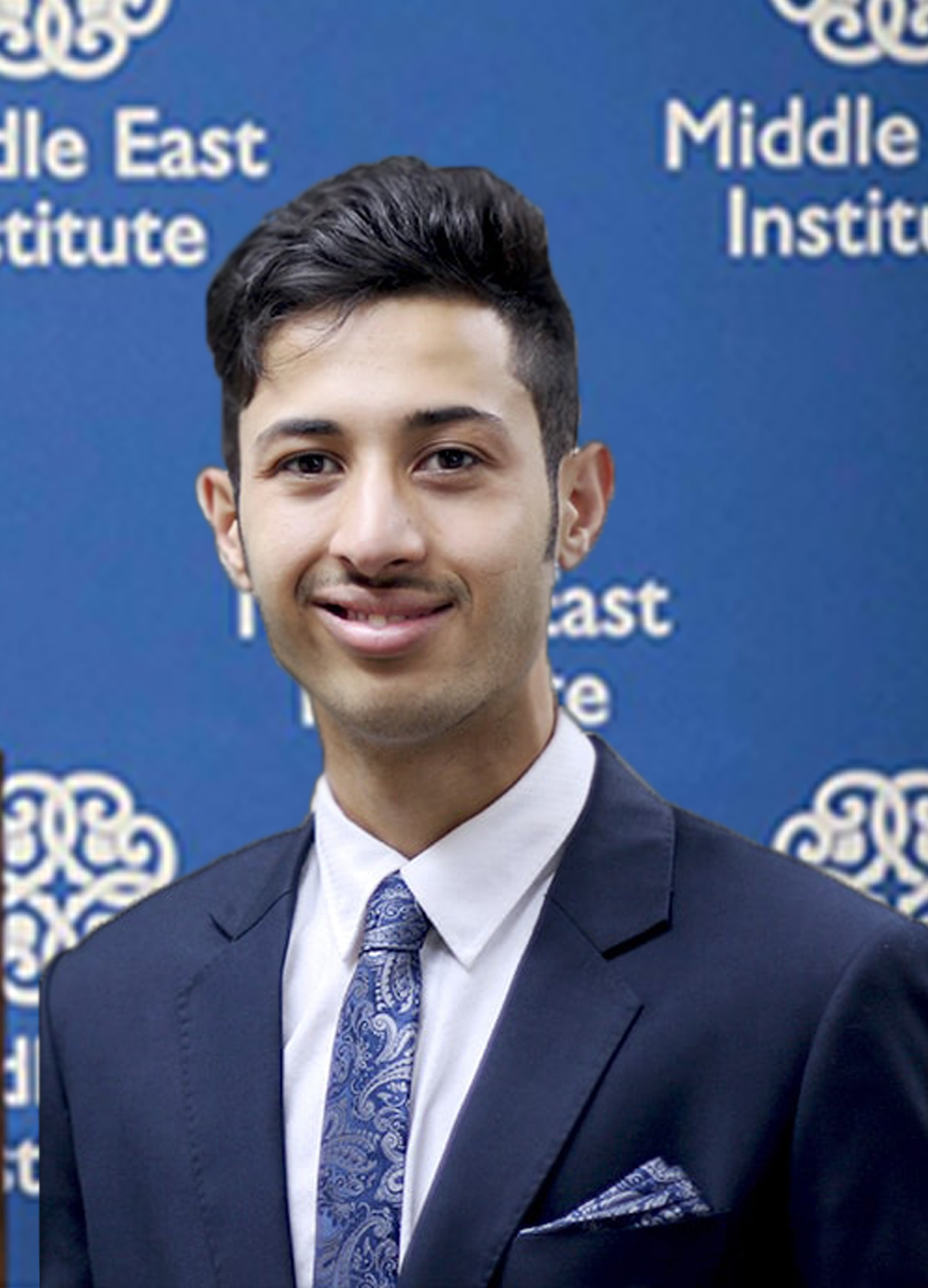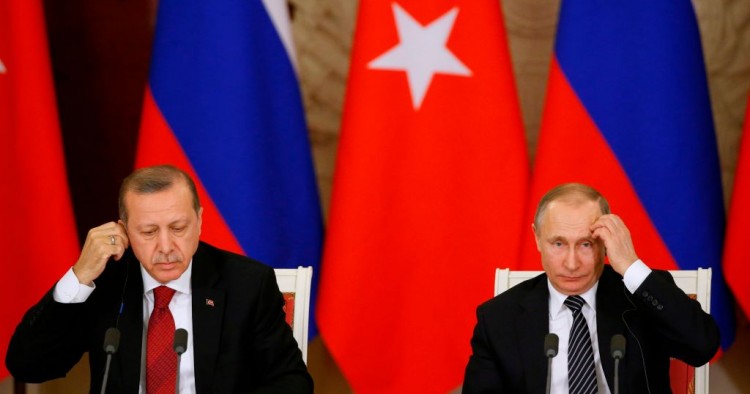This week's briefing on recent news and upcoming events in the region featuring Maxim A. Suchkov, Ibrahim Jalal, Eliza Campbell, Alex Vatanka, and Marvin G. Weinbaum.
Will Russia and Turkey face off over Nagorno-Karabakh?
Maxim A. Suchkov
Non-resident Scholar

The recent escalation in Nagorno-Karabakh is the third major crisis in the last five years — after Syria and Libya — that may pit Russian and Turkish geopolitical interests against one another. At least such is the conventional wisdom. The contested territory in the South Caucasus is internationally recognized as part of Azerbaijan but has not been governed by Baku since the late 1980s. Occasional clashes between Armenia and Azerbaijan, the latest of which were earlier this summer, seek to change the status quo in favor of the Azeris — thus far with little success.
While Turkey has traditionally stood by Azerbaijan, Russia has sought to play a more balanced role. On the one hand, Moscow sees Yerevan as its “strategic ally” whose security is provided by its military base in Armenia and allied guarantees under the Collective Security Treaty Organization, a Russian-led security alliance that includes Belarus, Tajikistan, Kazakhstan, and the Kyrgyz Republic. On the other hand, Moscow considers Azerbaijan to be a “strategic partner” and sells arms to Baku.
The semantics disguise the bottom-line challenge Moscow faces: Russia’s leverage in the region depends on its ability to effectively balance between all parties in conflict, while Turkey’s depends on the scale of its political and military support for the region’s Turkic-speaking ethnic groups. That Azerbaijan is a predominately Shi’a nation matters little: In this conflict politics come first, ethnic identity second, and religion is only good for mobilizing outside players under the banner of “Muslim solidarity.”
Unlike the Turkish leadership, which now seems more adamant about getting involved in the conflict, the potential price tag domestically for direct military engagement is higher for the Kremlin. Moscow’s military activities in Ukraine and Syria have grown into long-term liabilities. Taking on another fight would be costly for Vladimir Putin, both financially and politically.
Turkey’s tool box also seems more diversified when it comes to boots on the ground. Armenia claims there are 4,000 pro-Turkish militants from Syria now deployed in Azerbaijan. Turkey, in turn, argues that Kurdish and other pro-Armenian Middle Eastern groups have been spotted fighting for Armenia and training its forces.
Until now Russia has justified not getting directly involved on the Armenian side by pointing to the fact that the fighting is taking place in Nagorno-Karabakh and other areas occupied by Armenia in previous wars that are not covered by Russian security guarantees. But it’s easy to imagine how this justification would wear thin once the clashes spill over into internationally recognized Armenian territory. Not that it hasn’t happened before, but Turkey’s involvement may present Russia with a clear binary choice: lose face as a security ally to Armenia or risk casualties by getting engaged in the fight. Coincidentally (or not), Russia just held large-scale military drills in the region, called “Caucasus 2020,” and seems ready to consider worst-case scenarios. For now, however, Moscow remains focused on diplomacy, is in regular contact with all parties (including Turkey), and has made it clear it sees the OSCE Minsk Group — a body it co-chairs with the U.S. and France — as the only way to resolve the issue.
Yemen prisoner exchange talks lead to a deal
Ibrahim Jalal
MEI Scholar

Over the weekend in the Swiss city of Montreux, Fabrizio Carboni, the International Committee of the Red Cross (ICRC) director for the Near and Middle East, and Martin Griffiths, the U.N. special envoy for Yemen, announced that the Republic of Yemen Government (ROYG) and the Houthi rebels had agreed to release 1,081 “conflict-related individuals.” The deal isn’t entirely new; it rebrands the stalemated February breakthrough declared in Amman, Jordan and is part and parcel of the stalled 2018 Stockholm Agreement’s prisoner exchange, which should have been finalized over a year ago and involved the release of more than 15,000 prisoners and detainees. Since then, the ICRC has facilitated the release of several hundred individuals, less than 5 percent of the agreed-upon total. If implemented, this modified Amman deal could be another chance to build confidence, boost the mediators’ credibility, and serve as a gateway to the eventual release of all prisoners and detainees.
The deal encompasses 400 people on the ROYG’s list, including 15 Saudis and 4 Sudanese, and 681 Houthi prisoners. This was down from an initial total of 1,420 under the Amman deal, mainly due to an uncompromising Houthi approach that would have left the negotiations unfinished, as they were in the past three rounds in Jordan (and Oman). None of the four high-level officials mentioned by name in the prisoner exchange agreement are included in the first stage of the swap. The ROYG’s delegation, led by Sheikh Hadi Ahmed Heij, made several concessions to reach a breakthrough, according to Deputy Human Rights Minister Majed Fadhail, and the disparity in numbers between the two sides is seemingly a case in point. Earlier, Fadhail accused the Houthis of delaying the release of 1,420 prisoners by seeking to “divide what’s already divided” into stages and complained that the mediators lacked credible pressure on the insurgents to make a compromise.
While the release of the prisoners — including those arbitrarily detained, forcibly abducted, and disappeared, as well as those under house arrest and prisoners of war — will doubtless bring relief to hundreds of Yemeni families, the failure to clearly delineate between civilian and military cases remains problematic and contradicts the Geneva Convention and its additional protocols. The Houthis’ refusal to include 10 journalists sent for arbitrary trial in Sana'a in the deal, including four who have been acquitted, underlines the moral, humanitarian, and legal issues at stake, and the Abductees’ Mothers Association has called for the separation of arbitrary detainees from prisoners of war. Those arbitrarily detained or abducted for holding different political views, serving as journalists, and/or practicing basic civil and political rights — most of whom are on the ROYG’s list — cannot be compared to those captured in battle, who account for the majority on the Houthis’ list.
Moving forward, for this humanitarian measure to achieve real, tangible progress, both parties need to show good faith in their actions, especially the Houthis. The ICRC-led deal should be implemented within a few weeks and for now cautious optimism is required. The challenge will be to build on this deal to pave the way for the release of “all for all” prisoners and reestablish confidence in U.N.-sponsored processes, rather than using it to gain traction elsewhere.
Turkey’s troubling new social media law is set to come into force
Eliza Campbell
Co-director, Cyber Program

In the midst of silence from social media giants, and alarm from free speech and human rights advocates, Turkey’s newly passed social media law will quietly go into effect this week. The law, which was passed at the end of July, orders social media platforms with over one million daily users —including Facebook, Twitter, and YouTube, which constitute some of the only remaining public spaces for free speech or political opposition in the country — to open a local office or assign an in-country representative, for the purpose of establishing a formal review process by the Turkish government over information and content posted on these networks. The law also requires that companies store data locally and compels platforms to respond to requests to remove or restrict access to content within 48 hours, levying fines of up to 10 million Turkish lira ($1.3 million) if they do not comply. Companies that fail to do so will also be punished with bandwidth throttling, making their sites effectively unusable.
The law represents a ramping up of the censorship efforts on which Turkish President Recep Tayyip Erdogan has increasingly relied in the face of mounting opposition and unpopularity. As more journalists and independent news outlets have faced harassment, unlawful detention, and censorship, particularly since the failed coup of 2016, the future for free media and opposition discourse in Turkey has turned desperate. Now this fight has moved online, where Turkish authorities have blocked up to 400,000 websites per year, fought a long fight to keep the open source online encyclopedia site Wikipedia blocked, and are now challenging Turkish citizens’ ability to organize, communicate, and express political opinions via social media. The move also comes as Erdogan has become aggressive about silencing his critics, in a move that mimics those of authoritarian-style leaders around the world.
The law, if passed and implemented in full, would set a dangerous precedent for the ability of authoritarian governments to effectively block and police channels for communication and dissent, as well as any remaining hope for independent media to help keep such governments accountable. The data localization clause, in particular, has troubling implications for Turkish authorities’ ability to demand that companies provide them with users’ private information, which could lead to the potential for increased persecution and surveillance of citizens within the country. This development also has critical implications for the future of Turkey’s young electorate, particularly its growing “Gen-Z,” a swelling segment of the population composed of teenagers and young adults who have grown up almost entirely online and who have indicated a growing sense of mistrust and anger toward their political leaders. It remains to be seen how the future of political opposition will develop under these strained conditions. What is perhaps most interesting and most troubling about this week’s news, however, is the lack of it, as social media companies have remained all but silent, and social media channels in and around Turkey have quieted. More broadly, this development raises questions about the relationship between enormous social media platforms and the countries in which they operate. The controversial video sharing platform TikTok, for example, came under scrutiny last year when it was reported to have complied with Turkish content moderators in their request to censor “LGBTQ content” on its platform. Although the policy was reportedly reversed, the incident raises further questions about social media companies’ willingness to comply with local government censorship, and the power that individual U.S. platforms have in shaping huge questions of free speech and civil liberties in the Middle East and beyond. It will be critical to watch carefully — online and as well as offline — to understand what comes next.
Tehran is at the heart of the Washington-Baghdad divide
Alex Vatanka
Director of Iran Program and Senior Fellow, Frontier Europe Initiative

This past week there were further signs of the fragility of U.S.-Iraq relations. Iran’s role in Iraq is at the heart of the matter. Washington reportedly warned Baghdad that the American embassy will close unless armed attacks against it by pro-Iran Shi’a militias come to an end. U.S. frustrations with the state of affairs in Iraq are understandable, but such an ultimatum is both counter-productive to American interests in Iraq and particularly badly timed. Washington’s biggest frustration with Baghdad is arguably Iraq’s inability to reduce Tehran’s clout in the country. But it is too early to call it quits.
This past week again showed that Tehran’s sway in Iraq is hardly unquestioned. Iraq’s top religious figure, Ayatollah Ali Sistani, recently told a visiting U.N. delegation that international monitoring organizations should make sure Iraq’s next elections — set for June 2021 — are free and fair. In Tehran, the Office of the Supreme Leader Ayatollah Ali Khamenei evidently deemed Sistani’s statement as an attack on Iran and its position as a powerbroker in Iraqi politics. The editor of Kayhan newspaper, Hossein Shariatmadari, a mouthpiece for Khamenei, slammed Sistani, saying, “To invite the U.N. to monitor elections shows the bankruptcy of a country and to have no faith in the [Iraqi] people and trusting in foreigners.” Shariatmadari’s attack on Sistani was swiftly condemned across the political spectrum in Baghdad.
The Iranian Foreign Ministry subsequently issued an unconvincing statement of regret, depicting Shariatmadari as a rogue figure. Both in Iraq and Iran, however, the view will rightly be that Shariatmadari is expressing a fear among the Iranian authorities that efforts to internationalize Iraq’s elections will be a net loss for Tehran’s command over the political process in Baghdad. The same is true for Sistani’s support for demobilizing some of the Iraqi Shi’a militias Iran has backed. There is an even bigger issue at stake as well. The involvement of international observers in Iraq’s election will surely result in louder calls by the Iranian people for them to play a similar role in Iran’s next presidential election, which is also set for June 2021.
The reality is that Ayatollah Khamenei and Ayatollah Sistani have major differences about the fusion of religion and politics. The former is in charge of the world’s largest militant theocracy, a model that Sistani clearly sees as a bad fit for Iraq. This schism is not new, but Sistani’s continued perseverance in resisting Khamenei’s political model remains an opportunity for Washington. Packing up the embassy in Baghdad is the last thing Washington should contemplate.
No break in Pakistan’s political wars
Marvin G. Weinbaum
Director for Afghanistan and Pakistan Studies

Opposition parties in Pakistan are coming under increasing pressure. Prime Minister Imran Khan seems determined to speed up judicial processes to indict his principal adversaries. All the major opposition parties — the Pakistan Peoples Party, Pakistan Muslim League (N) (PML-N), and Jamiat Ulema-e Islam (F) — are embroiled in corruption cases being pursued by Pakistan’s National Accountability Bureau and the courts. What little working relationship has remained between the Khan government and opposition parties has broken down. The government and opposition have most recently clashed over the Parliament’s passage of bills to curb money-laundering and terrorist financing that the opposition parties see as designed to cripple their financial activities. Fighting back, the ordinarily divided opposition has pulled together. In an uphill effort to bring the government down, they have called for massive rallies in the next six months and for a long march on Islamabad in January.
In two recent meetings, kept under wraps for a week, a senior PML-N leader met with the top army brass, sparking some speculation of an opposition attempt to strike a deal. But then it appeared that rather than backdoor diplomacy to ease the government out of power, the meetings may have been mainly a case of indiscipline within the PML-N. Following the disclosure of the meetings, former Prime Minister Nawaz Sharif — in London on prison medical release — using his twitter account forbade his party’s members from holding private talks with the military brass without receiving prior permission.
The military’s closed-door meetings with the PML-N official and another meeting several days later with a delegation of opposition party heads could be read as a sign of its willingness to step in as a middleman to cool down the growing political tensions in the country. The military’s believed increasing disappointment with Khan and his government might suggest some readiness to distance itself from its political protégé. At the same time, it is highly doubtful that the military leadership would feel better served by returning to power any of the current crop of largely discredited opposition politicians. Nor does the collective opposition seem any more disposed, at least publicly, to build bridges to the military. Speaking to an opposition all parties conference in a video link on Sept. 20, Sharif lashed out at the military, calling it a “state above the state.” A communique issued by the conference demanded that the military stay out of politics. Whatever else happens in Pakistan, the political wars are ongoing.
This article was co-authored by Ghasharib Shoukat, Hamid Safi, and Jack Stewart, research assistants to Marvin G. Weinbaum.
(Photo by SERGEI ILNITSKY/POOL/AFP via Getty Images)
The Middle East Institute (MEI) is an independent, non-partisan, non-for-profit, educational organization. It does not engage in advocacy and its scholars’ opinions are their own. MEI welcomes financial donations, but retains sole editorial control over its work and its publications reflect only the authors’ views. For a listing of MEI donors, please click here.













